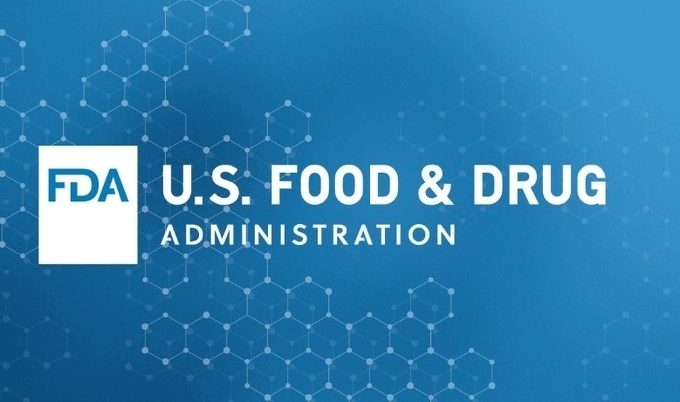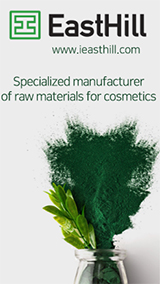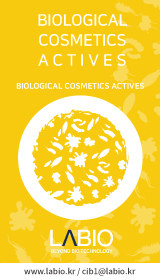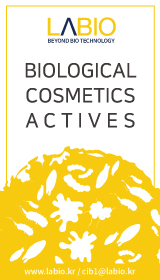
On December 29 of last year, US President Joe Biden enacted the Food and Drug Omnibus Reform Act of 2022, including the Modernization of Cosmetics Regulation Act of 2022(MoCRA) was signed.
This is the first amendment to the US Cosmetics Act since 1938. With the establishment of MoCRA, domestic cosmetics companies and related companies are flooded with inquiries related to company and product registration, and various issues related to this are also occurring.
Regarding this, Cosmorning publishes two special articles written by Hong Jeong-hoon, CEO of Resources of K Beauty (ROK), which specializes in developing and producing private label cosmetics for large US distributors and is distributing them in the US. .
Currently, Resources of K Beauty (ROK) is a direct vendor of Walgreens, a large drugstore chain in the US, and specializes in developing products for the organic supermarket Whole Foods Market.
Based on the experience and know-how acquired in the process of conducting cosmetics-related practices with large US retailers and supporting Korean manufacturers and brand companies to enter the US cosmetics market, the main contents of MoCRA, which will be effective from the end of this year, are discussed. It will be shared throughout the session.
This article is written based on the knowledge and experience of Hong Jeong-hoon, CEO of Resource of K Beauty Co., Ltd., and informs readers that it is not an article by Cosmorning. <Editor's Note>
Regulations on manufacturing facilities, safety, and package labeling are key
The 'American Cosmetics Regulation Modernization Act' (MoCRA), which goes into effect at the end of this year, contains the word 'regulation' as it appears in the name of the law. In the future, it means that cosmetics cannot be freely sold in the US market and are 'restricted'.
If so, what does it mean to regulate the contents of what? If you search the contents of MoCRA, you can get a rough idea of what the regulation is because many articles and the full contents of the law have already been made public.
In other words, △ manufacturing must be done in a facility that meets GMP (including cGMP-ISO22716) standards, △ safety of product contents, △ all phrases used in package labels comply with the Cosmetic Label Guide and related laws. is to regulate
Regulation of manufacturing facilities and products is a key issue, and it has the intention and purpose of regulating products that could be freely sold in the US market even if they did not meet FDA regulations before, and reorganizing the cosmetics market according to more specific legal standards. can be interpreted
To summarize again, the three main regulatory targets are: △ cosmetics manufactured in GMP facilities △ the safety of ingredients in products △ the third is all the contents indicated on the label.
“Companies under $1 million exempted from obligations, just giving more grace period”
The first of these three major regulatory targets stipulates that manufacturing facilities must be produced by GMP (cGMP-ISO22716) certified companies, which have already secured a certain level of scale (sales of more than $ 1 million per year). Performance) Most of the companies manufacture in cGMP facilities, so it is judged that this is not a big problem.
So, what about products that cannot be produced in cGMP facilities, such as small businesses (sales under $1 million) or nail shops?
Fortunately, companies with sales of less than $1 million in the United States are among the key requirements of MoCRA, 'exemption from obligations of company registration and product registration' for small businesses (△ SEC. 606. GOOD MANUFACTURING PRACTICE △ SEC. 607. REGISTRATION AND PRODUCT LISTING).
However, the exemption should be understood as giving more flexibility at the beginning of the law and a longer grace period. As the original purpose of the law is regulation, the small number of companies that do not or fail to comply with the regulation will ultimately be subject to greater restrictions by the regulation.
To put it more simply, in the beginning, the agency that enforces the law, the FDA, will basically require cosmetics registration numbers when products of Korean companies, which are foreign companies, are imported into the United States, and it is expected that a system in which customs clearance will be established based on the number will be established. .
After that, it is highly likely that Amazon, a distribution channel that can have the greatest impact on Korean cosmetics companies, will lead to a mandatory requirement for cosmetics registration numbers registered in the MoCRA system (a system to be released later).
It seems only a matter of time before Amazon establishes and applies these policies, which could have more serious impact than federal law MoCRA and FDA regulations.
Areas of consumer group activities, small and medium-sized enterprises should be no exception
Many companies believe that small and medium-sized enterprises (SMEs) are exempted from the obligation to register and product registration under the applicable law, as in the past, as free export is possible, but this overlooks the fact that a greater risk factor may exist.
With the implementation of MoCRA, consumer rights will be greatly strengthened, and the notification system (activities of consumer organizations, etc.) will be further activated in connection with this, and the most basic regulation already applied to all cosmetics, the 'Cosmetic Label Guide' It is clear that investigations on violation cases will be expanded.
In other words, even if it is a product of a company that is not obliged to register facilities and products under MoCRA, it is judged that it will be subject to more intensive investigation and regulation according to the 'Fair Packaging and Labeling Act' and 'FD&C Act' on the items marked on the product. .
Therefore, even small and medium-sized enterprises that are not subject to MoCRA should review in advance whether there are any illegal parts in the labeling of products exported to the United States, and use this as an opportunity to proceed with export.
It may be ironic, but it should also be noted that US consumers and major consumer groups do not know whether these small and medium-sized businesses' products fall under the MoCRA exemption.
Importance of Safety Tests and Verification Documents
If you look at the regulation on the second key point of regulation, 'proving safety of products' (Safety Substantiation), there are two key words. Whether the product is safe, and whether there are substantiations to prove its safety, these two are the key points.
In fact, the MoCRA law on the safety of cosmetics is not a completely new law. As a regulation of the FDA for a long time, there are regulations on safety in accordance with the US federal laws FPLA (Fair Packaging and Labeling Act) and FDCA (Federal Food, Drug, and Cosmetic Act).
However, now there is an obligation to prepare proof documents for product safety and to submit these proof documents when registering products in the MoCRA system.
(Reference: FDA Authority Over Cosmetics: How Cosmetics Are Not FDA- Approved, but Are FDA-Regulated)
As the most basic, there are tests to be prepared for product safety. All of these tests are subject to US standards. In addition, only test reports performed by test organizations can be recognized.
It can be divided into three main tests. In other words, △ microbiological test △ heavy metal test △ preservative power test for microbes are them. Most of the companies exporting cosmetics to the US on a scale above a certain level consider these three tests to be very basic tests.
However, when the US standards are applied in detail regarding test methods and standards, and accreditation of test organizations, these parts are not easy to consider.
If Korean cosmetics companies do not test at internationally recognized testing institutes such as Intertek or UL, but conduct tests based on Korean test standards by their own quality team or test institutes in Korea, the stability proof test results may be judged unsuitable because they do not conform to the US standards. Because the possibility exists.
Until now, while Resource of K Beauty Co., Ltd. has basically performed the above three tests countless times while developing private label products for large US retailers, these three tests have experienced many trials and errors and many failures. can be said
I would like to ask a few questions about safety-related testing. △ Is your test method USP standard? △ Can your company perform antiseptic test for Pseudo-monas bacteria? △ Is the conformity or non-conformity of the test standard the PCPC (American Cosmetics Association) standard?
Now, it is judged that the most important task is to accurately grasp the criteria in preparing documents to prove safety.
Keep in mind that 'every word on the label is regulated'
The third key point of regulation is the regulation of all phrases used on labels (cosmetic containers, single boxes, etc.). The most common and most problematic part of Korean cosmetic companies is the label.
It is now time to seriously recognize and keep in mind the fact that 'all phrases used on labels, including product names, are subject to regulation'. From the product name, you can see countless cases where words that are regulated are used.
△ Product name △ Product description △ Claims △ Claims that specific ingredients such as SLS·SLES·Paraben·Phtalate are not included △ Expressions such as Clinically Tested are such examples.
Compliance with national regulations is an opportunity to create new possibilities
So far, Korean cosmetics companies and related companies have explained about the regulations in the US, which are so numerous that they give up entering the US market because of the regulations that exist in the US cosmetics market. In fact, Korean cosmetics companies have been using too many label phrases freely based on Korean standards. Now is the time to understand the criteria for entering the US market with this awareness of the problem and prepare.
To prepare for this, I would like to present the three most important points:
First, the Cosmetic Label Guide, which is the most basic and standard for label review and correction, must be reviewed in detail and closely.
<Reference site: https://www.fda.gov/cosmetics/cosmetics-labeling-regulations/cosmetics-labeling-guide >
Second, after reviewing the notation of the label, the correction must be carried out with an expert who can accurately correct it. It should not be forgotten that the modification of the label should be able to prepare a test report or supporting documents to prove the phrases at the same time while making use of the characteristics and advantages of each company's products.
The third is cost and testing period. Clinical trials that substantiate claims (specific statements about features and benefits) of each product (e.g. Allergy-Tested/ Dermatologist Tested/ Hypoallergenic/ Non-comedogenic) must be conducted by an accredited institution in the United States. Cost and time required for testing always appear as the biggest problems.
Reducing these test costs and accurately identifying the time required for testing is also one of the most important challenges. In order to reduce the test cost, it will be very important to receive an accurate test (which can pass unconditionally) within the originally planned and set period with the help of a professional company that has already continuously performed the above tests.
Conclusion - When to Walk the Right Way More Important Than Shortcuts
In addition to this, there are incidental preparations due to the implementation of MoCRA, but they are omitted in this manuscript.
The decision to title this article as 'The Right Way to Enter the US Cosmetics Market' is the reason why Korean cosmetics companies have been investing and making efforts to increase their market share in the US market for decades, but there have been no special results. because you know
In the end, it is judged that it was because they only used short-sightedness and short-term strategies that focused only on entering the US market, but did not make efforts and develop strategies to properly establish their position in the market from a long-term perspective. Now is the time to walk the 'right path' instead of the shortcut.
The biggest reason for not continuing the US business even after supplying private label products and brand products of large US distribution companies to large distribution channels in the US and supplying them throughout the US is 'the most basic regulation of MoCRA (a law that has existed for a very long time - FPLA) & FDCA).
From the point of view of small and medium-sized enterprises (SMEs), the implementation of the US law would not be welcome, but now is the time to make a choice. About whether to break through MoCRA regulations and expand the distribution of their brands and products in the US market, or whether to give up the US market.
The process of preparing to respond to MoCRA for entering the US market can be said to be a very short period of time, but I am confident that if we prepare properly and accurately according to the new law, we will have an opportunity to confidently propose our own brands and products to large retailers and buyers. do.
At the same time, through this process, it is not limited to limited sales on the platform called Amazon, but preparations to spread to major major US distribution companies (Walgreens, CVS, Target, Walmart, Kroget, Sally, Ulta, Sephora, Whole Foods Market, etc.) It will happen naturally too. ]
Hong Jung-hoon, CEO of Resource of K Beauty Co., Ltd.
American cosmetics distribution expert. While serving as vice president at Christine Balmi New York, the largest official esthetic education institution in the United States and a cosmetics company, she directed the development of private label products for large American distribution companies. Based on his 20 years of cosmetics distribution experience in the US, he established and operates Resources of K-Beauty Co., Ltd., which supports the advancement of Korean cosmetics companies into the US. It supports Korean cosmetics companies to register as production and supply vendors in Whole Foods Market, Sally Beauty, Amazon, and Ulta Beauty in the United States, while producing and supplying private label cosmetics for these distribution companies. The 'PROK system', a platform that supports K-beauty brand companies to advance into large-scale distribution in the US, is also being built and operated.







